Apply for our Voices to End FGM/C 2024 Hybrid Digital Storytelling Workshop!
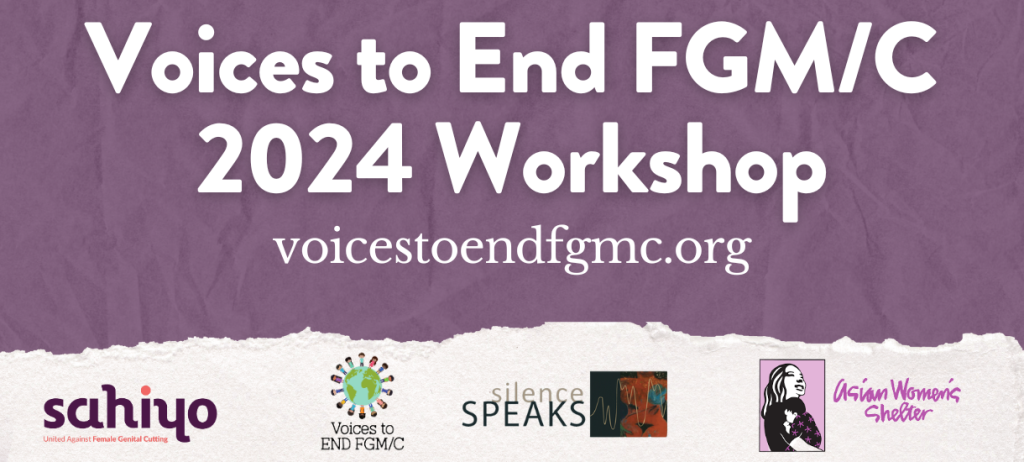
We are planning our second hybrid-format Voices to End FGM/C Digital Storytelling Workshop! This workshop offers a global platform for FGM/C survivors and community members affected by it to share their stories. When: Online Workshop Dates: May 28 and June 4, 4-6 pm PT / 7-9 pm ET In-person Workshop Dates: June 22-23 in Washington, D.C. 9 am – 5 pm ET (travel days: June 21 and 24, 2024) Who: Open to individuals in the U.S. impacted by FGM/C as well as allies passionate about raising awareness and ending the practice. What: Learn to craft impactful videos using techniques and mediums like voice-overs, images, and short clips guided by facilitators from Sahiyo, SilenceSpeaks, and Asian Women’s Shelter. Post-Workshop: Sahiyo will assist participants in sharing their videos publicly as part of our advocacy efforts to raise awareness. Apply by April 15, 2024 to be part of the ninth Voices to End FGM/C cohort!For inquiries, contact Aries at aries@sahiyo.org. You can also visit our website to learn more about the project and watch past workshop videos!
Applications open to join the 2023 Voices to End FGM/C hybrid digital storytelling workshop cohort!
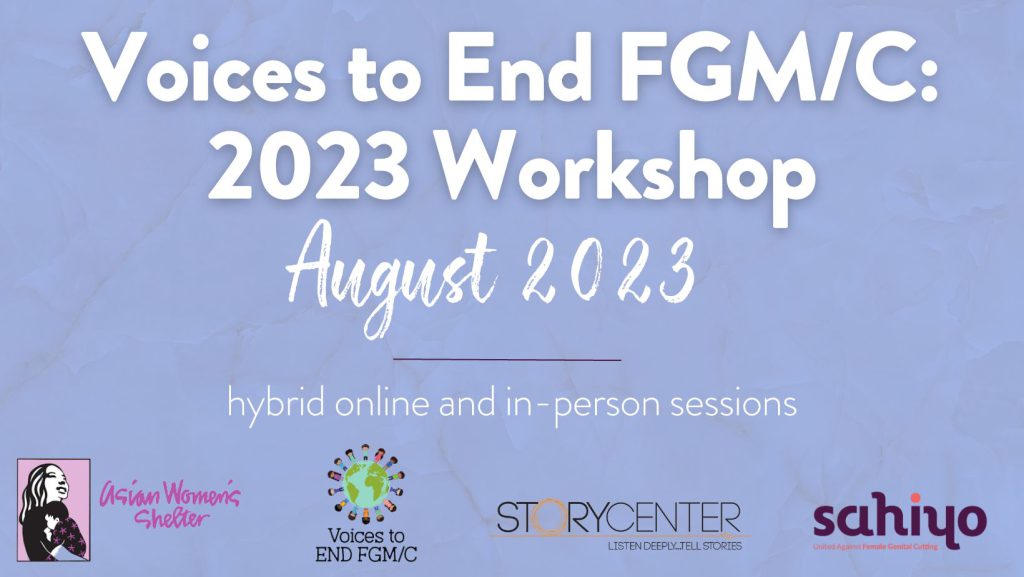
Sahiyo U.S., StoryCenter, and Asian Women’s Shelter would like to announce that recruitment is open for our 2023 Voices to End FGM/C hybrid digital storytelling workshop. Since 2015, Sahiyo has provided various storytelling platforms for survivors and community members around the world to share their experiences of female genital cutting (FGC); in particular, Voices to End FGM/C, a digital storytelling project, brings individuals impacted by FGM/C together in order to heal, build community with one another, and create digital stories that can be used to support surivors and educate and prevent future generations form undergoing this harm. More about the workshop: When: The virtual sessions will take place on Tuesday, August 14th and Tuesday, August 22nd, 2023, from 4-6 pm Pacific / 7-9 pm Eastern (U.S. time). In order to be confirmed, applicants must be able to attend all workshop sessions, both virtual and in-person. The in-person sessions will take place on August 26th and 27th, 2023, from 9 am to 5 pm PT in Oakland, CA. Please note that the travel days to and from the workshop will be on August 25th and 28th, 2023. Who: The workshop is open to those based in the U.S. who have experienced FGM/C, as well as family members, friends, advocates, and others who would like to share a story about why it needs to end. What: Each participant will learn to create their own simple video through the use of voiceover audio, still images, and video clips. This participatory media process will be guided by facilitators from Sahiyo, StoryCenter, and Asian Women’s Shelter. [youtube url=”https://www.youtube.com/watch?v=705aESUouik”] Following the workshop, Sahiyo will support storytellers in publicly sharing their videos as part of our ongoing education and advocacy work to end FGM/C. If you’re interested in taking part, please fill out the application by Friday, July 15, 2023. If you would like more information on this revolutionary storytelling experience, please email Mariya at mariya@sahiyo.org. To view digital stories from previous Voices to End FGM/C workshops, click here.
Sahiyo Announces it’s 8th Voices to End FGM/C Digital Storytelling Workshop
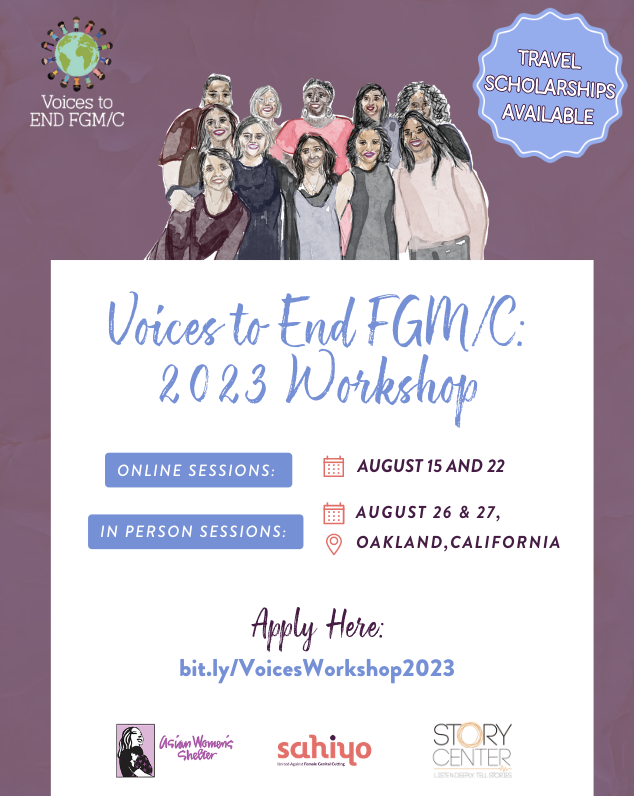
Sahiyo is happy to announce we’re hosting our first hybrid-format Voices to End FGM/C Digital Storytelling Workshop this August 2023! During this workshop, each participant will learn to create their own video through the use of voiceover audio, still images, and video clips. This participatory media process will be guided by facilitators from Sahiyo, StoryCenter, and Asian Women’s Shelter. Online Workshop Dates: Tues, Aug 15th & Tue, Aug 22nd (via Zoom) In-person Workshop Dates: Sat, Aug 26th & Sun, Aug 27th In-person Workshop Location: Oakland, California. Who Can Apply: Individuals living in the U.S. who have experienced FGM/C, as well as family members, friends, advocates, and others living in the U.S. who would like to share a story about the impact of FGM/C in their lives. Application Link: https://bit.ly/VoicesWorkshop2023. Application Deadline: July 15th TRAVEL SCHOLARSHIPS ARE AVAILABLE for all who are accepted into the program and in need of financial support to attend the workshop! To learn more about the Voices workshop experience, watch our behind the scenes video.
Session on FGM at the workshop Nayi Dishayein- Rethinking Development
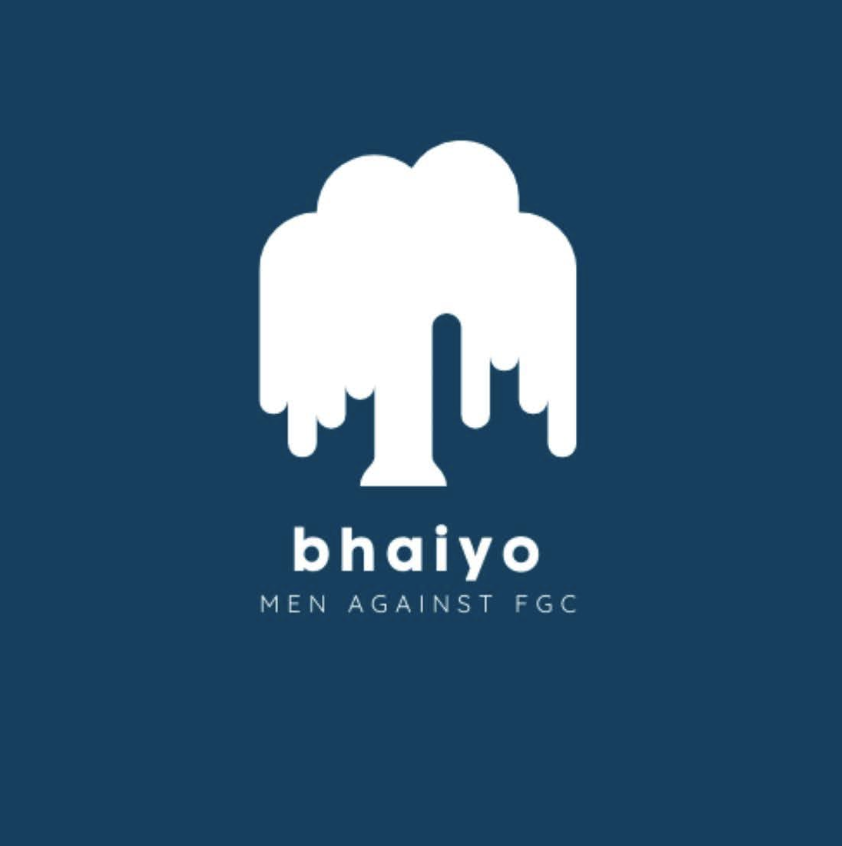
By Mohammad Chappalwala Gender-based violence takes many forms. One of the most extreme, I think, is female genital cutting/mutilation (FGM/C), which causes harm to the youngest and most vulnerable members of our society. Being a male member of a community that practices this, I believe it is my responsibility to spread awareness regarding this harm that is often done to seek control of the sexuality of women. On 26th December, 2022, Sambhaavnaa Institute of Public Policy and Politics incorporated FGM/C into its Nayi Dishayein workshop, a 12-day course educating youth from across India on a wide range of issues, from development and the confines of patriarchy to environmental conservation and sustainable living. We, along with our participants, challenged our beliefs, views, convictions, and privilege resulting from the enduring power structures that stem from the social markers of caste, gender, religion, and class; and how they are linked with the notion(s) of development. We began with a brief introduction to the practice of FGM/C, and discussed the different types practiced within different communities around the world. We looked at this form of gender-based violence through the lens of patriarchy, and examined how patriarchy enables gender violence, controls the sexuality of women and other genders, and expects conformity. After this, we issued a trigger warning and screened the movie, A Pinch of Skin for our participants. The film was followed by a short presentation detailing the practice of FGM/C and its categorization as a human rights violation by the World Health Organization. I find the fact that male members of my community are either unaware of FGM/C, or choose to stay away from the cutting of their loved ones, to be deeply unsettling. My community is the Dawoodi Bohra community, where this practice is exercised discreetly – nobody talks about it. Usually, the mother and grandmother of the child decide to take her to a local practitioner, who gets the job done. Often these practitioners are not even medically trained. In 2019, my team and I had the opportunity to attend Sahiyo’s FGM/C retreat and learn from Dr. Sheroo Zamindar, an obstetrician-gynecologist from Ahmedabad. With this knowledge base and our own learning, we were able to educate participants of this recent session on FGM/C, which is what we believe to be a crucial part of any discussion chronicling gender-based violence. This February 6th, International Day of Zero Tolerance for FGM/C, we, as male allies, must wholeheartedly commit to becoming pioneers in the conversation to end this practice and protect those we love. Mohammad Chappalwala is an autodidact environmentalist who left his corporate job and the hustle of the city to live in the mountains and work for the community. He is passionate about contributing to social movements that deal with the fundamental rights of the people, and strongly believes in the work of Sahiyo; he likes to provide complete support to stop FGM/C as a Bhaiyo, or male ally. He is a programs convener at Sambhaavnaa Institute of Public Policy and Politics, Himachal Pradesh.
Sahiyo hosts workshop on FGC and storytelling for Nomad Travelers
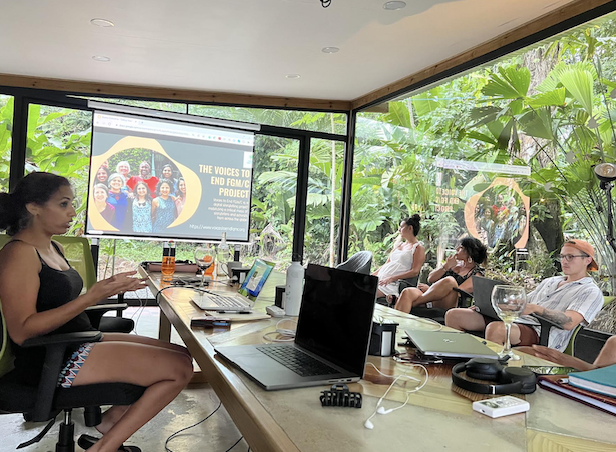
For nearly the whole month of November, Sahiyo’s co-founder and U.S. Executive Director Mariya Taher was in Panama with the Noma Collective, a community of remote working professionals. On November 10th, she hosted a workshop for the community to help raise awareness on the topic of female genital cutting (FGC), which many individuals were unaware of. The workshop provided an overview of storytelling’s impact in forming connections and creating social change, specifically in how Sahiyo uses storytelling as an intervention to support survivors of FGC. Participants were also given a general overview of FGC, the forms of FGC and their impacts, and the reasons and justifications given for the continuation of the harmful practice. At the end of the workshop, participants were given a chance to practice storytelling techniques used in Sahiyo programs through writing prompts and exercises, which focused on turning their travel experiences into meaningful stories. To learn more about Sahiyo’s community education and outreach program, visit our website.
Training Social Workers to be more responsive to survivors of FGC
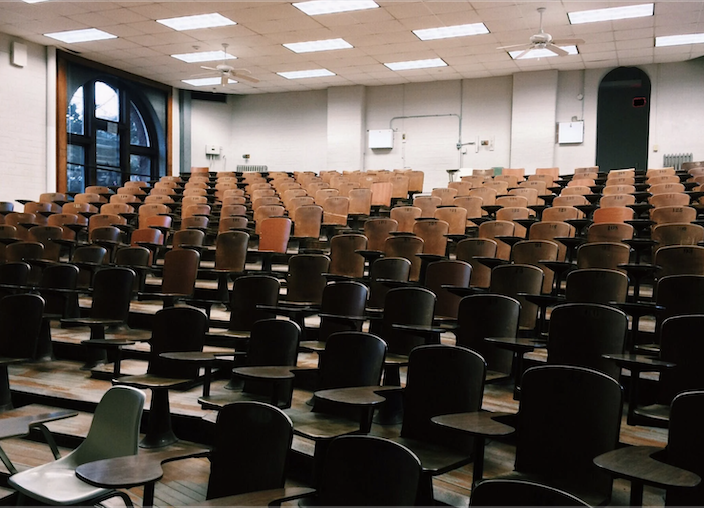
On June 23rd, Caitlin LeMay, LCSW of the US End FGM/C Network, and Mariya Taher, MSW, MFA of Sahiyo, parterned to provide a workshop on Female Genital Cutting (FGC) for social workers through Boston College Continuing Education. The workshop provided an introductory foundation for understanding what FGC is, including prevalence in the U.S. and globally, and best practices for working with survivors. Pre- and post-evaluations revealed a significant increase in participants’ confidence with talking about and addressing FGC in their social work practices, and how to provide relevant resources if needed. Boston College Continuing Education, in collaboration with the School of Social Work, offers a series of workshops three times a year – in Spring, Summer, and Fall – for new and experienced social workers looking to earn CEUs to maintain their license.
Struggle, belonging, and community: Sahiyo and StoryCenter hosted a Voices to End FGM/C screening
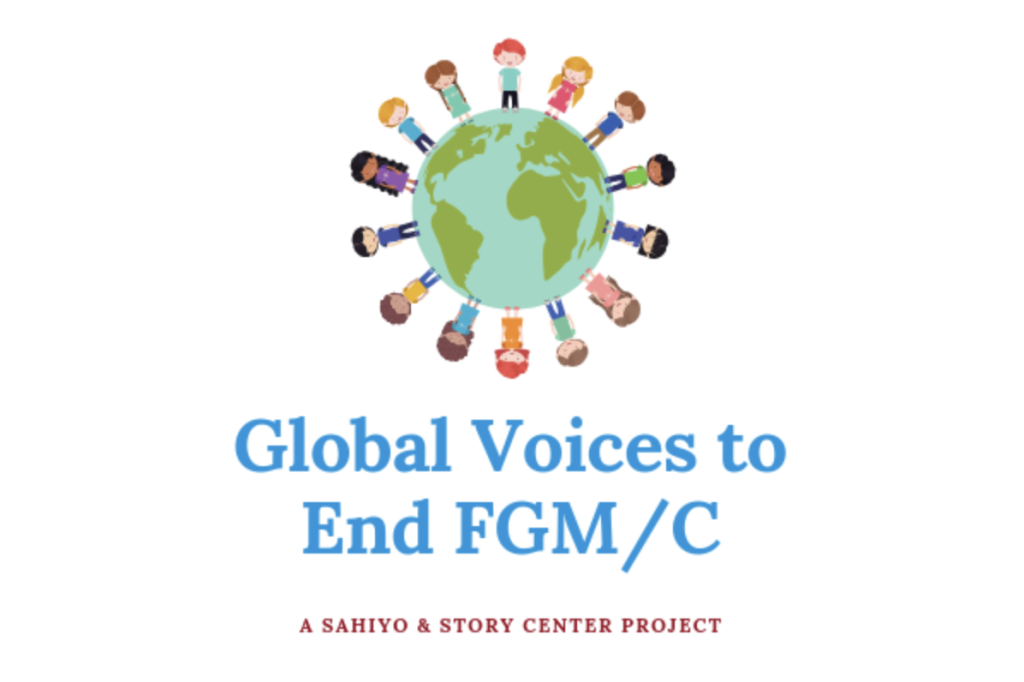
By Sandra Yu On August 19th, 2021, Sahiyo and StoryCenter co-hosted a film screening and panel discussion to highlight voices from the Voices to End FGM/C Digital Storytelling workshop. The event showcased eleven new digital stories, created virtually by a global group of advocates and survivors of female genital mutilation/cutting (FGM/C), during January and February. Lola’s transformation of shame to acceptance of her story is stunning to hear. Mariya Taher of Sahiyo and Amy Hill of StoryCenter, two facilitators of the annual workshop, led an audience Q&A and presented storytelling methodology, while two guest speakers, Nafisa (pseudonym) and Lola Ibrahim (Yoruba, English), shared their experiences with the digital storytelling workshop itself. Of the eleven stories shown, three were premiered at the event and had not been released to the public yet. The full collection can be found here, with stories continuing to be released. [blockquote font=”3″ italic=”yes”]”I feel liberated” Nafisa said. “I feel lighter, and I feel scared all at once. I wanted to talk about this work and khatna and the challenges that are faced in the community for many years.[/blockquote] The 2021 Voices digital collection succeeded tremendously in capturing the core concept of oppressive social norms. Almost reminiscent of short vignettes, each digital story actualized the abstract concept of social norms into concrete experiences. The stories stood individually as personal narratives of struggle, belonging, and community. Comparatively, this collection presented the larger struggles of individuals and collectives in battling gender-based violence. In response, audience members engaged deeply with each story, typing out messages with empathy and gratitude to each storyteller for taking up the challenge of telling their stories. It was uplifting to see how the digital stories could elicit such reactions of allyship and community-building, even within a Zoom chat. My personal highlight from the event was hearing Nafisa and Lola reflect on their experiences of storytelling and tackle the nuances of FGM/C in their respective communities. The digital storytelling workshop was evidently transformative, in similar and different ways for each participant. [blockquote font=”3″ italic=”yes”]“Sharing my shame can make a difference,” Lola said. “You understand that. Because you own that story. And you’re able to tell the story. So you’re no longer ashamed.”[/blockquote] Lola’s transformation of shame to acceptance of her story is stunning to hear. Through the workshop, she found a close-knit community to listen and empathize with her story. By producing a digital story, she now engages a global community to respond to her story. [blockquote font=”3″ italic=”yes”]“I felt powerless because in the world that we live in, when you’re anonymous, you feel like your voice is taken away,” said Nafisa. “You don’t have an identity, but I think sharing my story has allowed me to have a voice or has created a space for me. It has put the power back in my hands.”[/blockquote] Nafisa’s story is equally hopeful. Despite her anonymity, Nafisa proudly holds ownership of her story and continues to advocate against FGM/C. Sahiyo is excited to announce the upcoming 2022 Voices to End FGM/C digital storytelling workshop, as part of their continued partnership with StoryCenter. This workshop is open to all individuals who have a story to share about how they, or someone they know, have been impacted by FGC, and will be held virtually. For those interested in taking part, please fill out the application by Friday, December 11, 2021. Read more about the 2022 workshop and/or donate to support the Voices project.
Voices to End FGM/C: 2022 Workshop
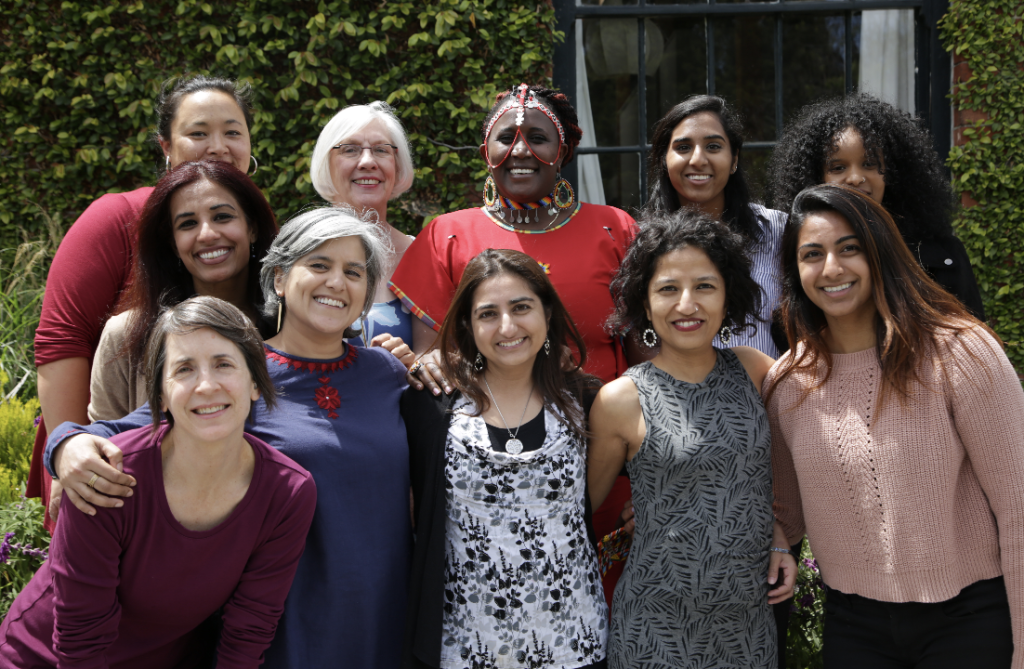
Get involved with the next cohort of the Voices to End FGM/C project! Since 2015, Sahiyo has provided various storytelling platforms for women and community members from all over the world to share their experiences of female genital cutting (FGC) through our Voices to End FGM/C program, in hopes of preventing this harmful practice from occurring to the next generation of girls. Now, we’re excited to announce our 2022 Voices to End FGM/C digital storytelling workshop, as part of our continued partnership with StoryCenter. This workshop is open to all individuals and will be held virtually. More about the workshop: When: Six online sessions, two hours each, held on consecutive week-days, from January through February 2022 (specific dates and times to be determined). Who: The workshop is open to women and people who have experienced FGM/C, as well as family members, friends, advocates, and others of any gender identity who would like to share a story. What: Each participant will create their own video through the use of voiceover audio, still images, and video clips. This participatory media process will be guided by facilitators from Sahiyo and StoryCenter. [youtube url=”https://www.youtube.com/watch?v=705aESUouik&t=7s”] If you’re interested in taking part, please fill out the application by Friday, December 11, 2021. Here is the application: https://bit.ly/Voices2022 Following the workshop, Sahiyo will support storytellers in publicly sharing their videos as part of our ongoing education and advocacy work to end FGM/C. If you would like more information on this revolutionary storytelling experience, email Mariya at mariya@sahiyo.com To see digital stories from previous “Voices to End FGM/C” workshops, click here.
Addressing Critical Intersections: Anti-Racism and Female Genital Cutting
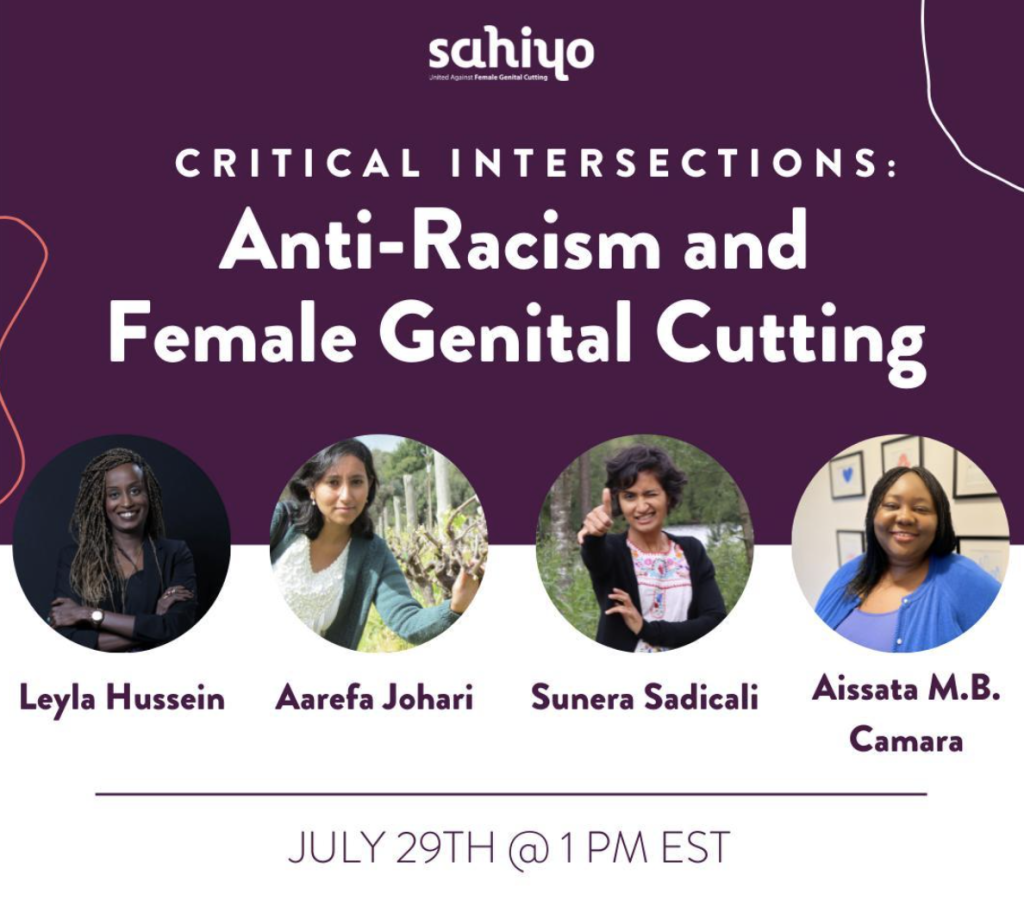
Although female genital cutting (FGC) is not limited to any one community, misconceptions rooted in racism, Islamophobia, and xenophobia have still negatively impacted the movement to end FGC – as well as survivors themselves. In our work to end FGC, we must use an intersectional approach to support the needs of all women impacted by FGC and bring about substantial change. First coined in 1989 by professor Kimberlé Williams Crenshaw, the term intersectionality was created to help us understand “the interconnected nature of social categorizations such as race, class, and gender as they apply to a given individual or group, regarded as creating overlapping and interdependent systems of discrimination or disadvantage.” An intersectional approach to all social movements is crucial to address the intersecting oppressions that impact different communities. On July 29th at 1 pm EST Sahiyo will be hosting the webinar, “Critical Intersections: Anti-Racism and Female Genital Cutting.” This webinar will explore the intersection of anti-racism work and the work to end FGC. Four expert speakers, including Leyla Hussein, Aarefa Johari, Aissata Camara, and Sunera Sadicali, will explore intersectionality and FGC in a panel moderated by Sahiyo U.S. Executive Director Mariya Taher. These renowned activists have worked in the field of FGC prevention and survivor support, exploring the critical intersections where this form of gender-based violence meets systemic racism. Our guest speakers’ experiences will expand the conversation on how FGC survivors and advocates for change often have to push back against racist narratives in their work and in their journey toward healing, as well as how systemic racism can delay substantial change on this issue. During this webinar, you’ll be able to be a part of the discussion about how we can all become better educated and better advocates in the journey to end systemic racism and FGC. This event is open to anyone who wishes to attend. Register Today: https://bit.ly/CriticalIntersectionsWebinar Leyla Hussein is an anti-FGM campaigner and a survivor who shares her personal experience of FGM with the goal of protecting girls from this abusive practice. Originally from Somalia, Leyla works as a psychotherapist in the United Kingdom and addresses the prevalence of FGM around the world. As Leyla reminds us, FGM is a practice of oppressing women and controlling women’s sexuality. It’s not an African issue, it’s not an Asian issue; it’s a global issue that requires a global investment in women. Aarefa Johari is a journalist, feminist and activist based in Mumbai, India. Aarefa is a senior reporter with Scroll.in, where she covers gender and labour. She has been speaking out against female genital cutting since 2012 and is one of the five original co-founders of Sahiyo. Sahiyo is an organization founded on the belief that storytelling in all forms can create positive social change and help empower communities to abandon the practice of FGC. Sunera Sadicali was born in 1982 in Mozambique and moved to Lisbon when she was 2 years old. She grew up in a family that was a part of the Bohra Community; they were (and still are) the only Bohras in the Portugal/Iberic Peninsula. Sunera underwent khatna (FGM Type I) by age of 8 in Pakistan while visiting her grandparents on vacation. She moved to Spain to study medicine by the age of 19 and finished her Family Medicine residency in Madrid. She has been politically active since the birth of her second child in 2012 in women’s issues, decolonial feminism, anti-racism and healthcare activism. Sunera is constantly trying to reconcile and find a balance between motherhood, art, her work as a family doctor, and political activism. Aissata M.B. Camara is a professional with over a decade of program development and management, strategic planning, and relationship-building experience in non-profit, local government, and international affairs. A social entrepreneur and advocate, she was featured in The Guardian, PBS, RFI, Deutshe Welle and Brut for her advocacy to end female genital mutilation/cutting. She has received numerous awards, including the New York State Assembly Certificate of Merit, Knights of Pythias Medal of Achievement, the Hackett Medal for Oratory Excellence, and the Jo Ivey Boufford Award. Aissata is also a frequent speaker at conferences, including high-level events at the United Nations.
Sahiyo, RAHMA and HEART discuss HIV, FGM/C and sexual health during workshop
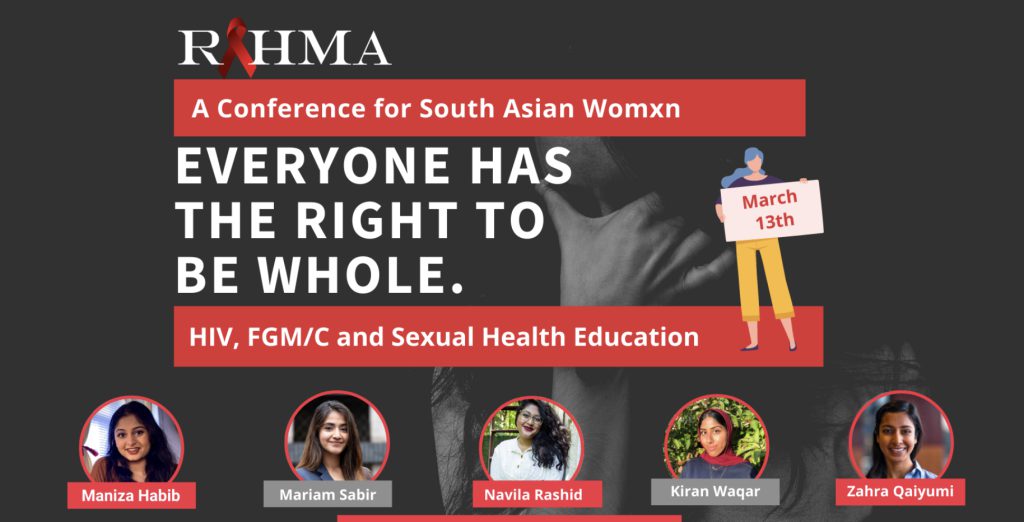
by Zahra Qaiyumi Sahiyo partnered with RAHMA and HEART on March 13 to host the My South Asian Sisters (MYSAS) workshop. The conference engaged women of South Asian descent in Washington, D.C. to take control of their sexual health, embrace their diverse needs, develop a healthy outlook on body positivity, become effective advocates against female genital mutilation/cutting (FGM/C) and gender-based violence (GBV), and address HIV stigma. MYSAS was funded through a grant from the D.C. Mayor’s Office of Asian American and Pacific Islander Affairs. The day-long event brought together South Asian women working in social work, public health graduate students and those completing undergraduate studies, among others. Speakers included Maniza Habib, Mariam Sabir, Navila Rashid, Kiran Waqar, and myself. The MYSAS workshop was interactive, with ample opportunity for participants to share thoughts, ask questions, and learn from one another. Sharing knowledge about FGM/C and planting seeds for others to become involved with work on gender-based violence was one of the most inspiring parts of the workshop. It can be challenging to find spaces for South Asians to come together and focus on topics affecting the South Asian community as a whole. Workshops like these allow for collaboration between organizations and individuals who are working to empower South Asian communities, and create opportunity for projects and programming that might otherwise not have been possible. As a workshop host, I spent most of my time-sharing knowledge about FGM/C, including existing research and statistics, as well as personal experiences and advocacy work. However, one of the most salient takeaways from this workshop resulted from a conversation with a participant about inclusive language. There is a general lack of data surrounding who and how many people undergo FGM/C. This includes individuals that do not identify as female and are FGM/C survivors. This prompted a discussion about transitioning to language that focuses on body parts rather than gendering the FGM/C survivor. For example, we discussed utilizing “person with a uterus/vagina/vulva.” This and other conversations during the MYSAS workshop illustrate the importance of programming that brings together those working in the GBV space so they may learn from and collaborate with each other.
